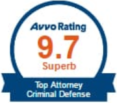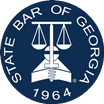Skilled Drug Sale & Distribution
Defense Lawyer in Madison, Georgia

Drugs are a major part of the American economy, especially when you add up all the money that goes into research and development, manufacturing, transportation, advertising, healthcare costs for prescriptions, and over-the-counter purchases. Because of concerns about public health and safety—not to mention the interests of the pharmaceutical industry—every aspect of this business, from clinical trials to television ads, is overseen by federal and state regulatory bodies.
For instance, anyone who is given authority to handle or deal with medical products or devices must adhere to strict practice and licensing procedures. This includes physicians, pharmacists, medical personnel, healing arts practitioners, drug manufacturers, and sales representatives. The regulations under the federal Food, Drug, and Cosmetic Act are meant to protect the public from unsafe drugs or medical devices.
On a parallel track, there are federal and state laws on the books that attempt to control the unauthorized possession, sale, or distribution of drugs considered to be illegal or dangerous. In brief, this includes any drug that has no legitimate medical benefit (for instance, heroin or cocaine) and drugs that you can only get with an authorized medical prescription (such as OxyContin). When you face charges for the sale of illegal drugs, you need a skilled and knowledgeable drug and sales distribution attorney from Michael Fulcher Law to help.
The current status of “recreational drugs”—substances with mind- or mood-altering effects that are pleasurable—is murky, especially since there is no consensus about which drugs or substances should be classified as such. Federal and state laws don’t recognize recreational drugs as a category. Instead, any substance that does not have a recognized medical use, such as ecstasy, LSD, MDMA, and marijuana, is usually classified under the Controlled Substances schedules—which makes them illegal.
What is a controlled substance in Georgia?
The Georgia Controlled Substances Act defines several classes of drugs as controlled substances, including narcotics, stimulants, depressants, hallucinogens, and marijuana. Although several states have removed marijuana from their list of illegal controlled substances, the status of this drug has not changed in Georgia. In fact, it still is classified as a Schedule I controlled substance, with the same potential for abuse as heroin.
The following is an overview of how medications and dangerous drugs are classified by the Controlled Substance Act using Schedules I through V:
- Schedule I: Drugs with no accepted medical use and high potential for abuse, such as heroin, marijuana, ecstasy, LSD, peyote, and other hallucinogens.
- Schedule II: Drugs with high potential for abuse and extreme psychological or physical dependence, such as cocaine, fentanyl, morphine, methamphetamine, oxycodone, Adderall, and Ritalin.
- Schedule III: Drugs with moderate potential for psychological or physical dependence, such as codeine, ketamine, steroids, and testosterone.
- Schedule IV: Drugs with low risk of abuse or dependence, such as Xanax, Valium, Ambien, and Tramadol.
- Schedule V: Drugs with low risk of abuse or dependence that contain limited amounts of narcotics, such as certain brands of cough medicine.
The Georgia legal system has strict laws for drug crimes, especially those that involve the sale and distribution of dangerous drugs. Enforcing these laws is not easy and figuring out appropriate penalties is complicated by mandatory sentencing guidelines that give judges less leeway in how they will adjudicate these cases. For instance, a conviction for selling heroin is an automatic felony with a mandatory minimum jail sentence of 5 years, with the option to extend that to 30 years. The sentence for a second offense is life imprisonment.
In addition, the court’s final determination is usually influenced by a host of mitigating factors, including how the drug is classified (Schedule I versus Schedule V), the amount of the substance in question, prior arrest history, and the circumstances of the arrest. If there is any indication that the defendant was intending to distribute or sell the drugs, the punishment immediately becomes more serious and is treated as a felony.
The state also imposes stringent penalties for certain Schedule IV drugs that can be used to cause egregious injury to another person. An example of this is Rohypnol, a powerful tranquilizer commonly known as “roofies” or the “date rape drug.” Although it is technically a Schedule IV controlled substance, Georgia courts will use Schedule I or II guidelines when they are sentencing someone for a Rohypnol drug offense.
Georgia drug laws are complicated. This is why it’s so important to secure the representation of a seasoned sales and distribution offense attorney who understands how the system in Georgia defines and prosecutes the different types of drug crimes. Working with a law firm that can help you present a strong case is your best chance at getting a fair trial and minimizing the penalties you’re facing. Contact your drug and sale distribution attorney and learn how to protect your freedom and future.
Is sales and distribution of drugs a serious offense in Georgia?
It is against the law to possess illegal drugs in Georgia. Even if you were planning to use the substance yourself, acquiring a drug through an illegal, unregulated channel, particularly if it has the potential for abuse, is against the law. This means that if law enforcement discovers even a very small amount of a controlled substance on your person, in your car, or at your residence, you could be charged with simple possession—which is a felony, with the exception of marijuana, which is a misdemeanor if under one ounce.
However, if the arresting officers had any reason to suspect that you were going to give these drugs to someone else, you could be hit with possession with intention to distribute. This will complicate things enormously since the penalties are much higher for these offenses and more likely to involve prison time.
Further, if there is a possibility that you were intending to sell the drugs, the charges—and penalties—will be even more severe, with attendant high fines and likely jail time. Even if you claim that you didn’t have any intention to distribute or sell, the court might make these inferences based on circumstantial evidence. For instance, the district attorney might argue that the amount of the drug you had on your person was above and beyond what someone would have for personal consumption and make assumptions about your intentions from there.
Why do sales and distribution offenses carry more weight than possession under Georgia legal statutes? The rationale is that these activities have the potential to cause harm to others and should have serious consequences. Substance abuse can have deleterious effects on the drug user’s personal health and family life and is often tied to other criminal activities. Therefore, the state makes it a crime to facilitate illegal drug use, even if this involves giving someone a controlled substance at their request. Georgia courts consider it an even worse crime when someone tries to make a profit from this activity, especially if they can prove that the offender made the sale knowing that it would put others at a risk of harm.
No one disputes the fact that substance abuse and addiction is a public health crisis, one that has no easy answers. Imposing harsh punishments for sales and distribution offenses has been the state’s response to the problem. If you are facing these charges in Morgan County, it is imperative that you contact a distribution and sales offense attorney immediately. You need a lawyer knowledgeable about Georgia drug offenses who will take a comprehensive look at your case in order to negotiate the best resolution for you and your family.
CALL US NOW
FOR A FREE CONSULTATION
Facing legal challenges, whether it’s a DUI, criminal charge, or navigating traffic-related offenses, requires a skilled advocate. Turn to Morgan County’s Michael Fulcher Law for a blend of legal expertise and unwavering client service from a former Georgia prosecutor. Discover the optimal legal solution for your situation by calling our criminal defense law firm at (706) 438-1555 or reaching out online. Schedule your free consultation today and gain a clearer path forward.
Penalties for sales and distribution of drugs in Georgia
The 4 most common illegal drug offenses are simple possession, possession with intent to distribute, possession with intent to sell, and drug trafficking. Simple possession can be a misdemeanor or felony, depending on the substance; the other charges are considered more serious felonies, and as such, are punished more severely. Penalties will also depend on several other factors such as drug classification, amounts involved, and prior conviction history.
Simple possession
Typically, this is being in possession of a ‘personal use’ amount. It is possible to arrange for a Conditional Discharge that may not result in a permanent conviction if completed successfully. The courts would rather not send someone to prison if they are clearly no threat to the community and are willing to stay on the straight and narrow moving forward. There are terms and conditions with this program:
- This was a first offense
- The defendant participates in a drug rehabilitation program or counseling.
- The defendant completes any community service as ordered by the court
- Successfully completes a period of probation, typically between 6 months and 3 years.
If the defendant successfully complies with all the conditions of the Conditional Discharge (a process that can take several years), charges will be dismissed. Failure to do so results in the maximum recommended sentence.
Possession with intent to distribute or sell
Both of these are felony crimes. Legal penalties depend on the classification of the drug in question. Below are the general guidelines for sentencing per Georgia Code O.C.G.A. 16-13-30; penalties for highly dangerous drugs may be stricter.
- Schedule I or narcotic Schedule II substances – First offense: 5 to 30 years imprisonment; second offense: up to 30 years
- Non-narcotic Schedule II substances – First offense: 2 to 15 years imprisonment; second offense: 5 to 30 years
- Schedule III, IV, V substances and Marijuana – First offense: 1 to 10 years imprisonment
Penalties for marijuana offenses in Georgia
In 2022, more than half of the states in this country have changed their laws regarding the personal or medical use of marijuana, a controlled substance that has had Schedule I status in federal and state codes. Georgia has not done so. Below are current guidelines the courts follow in marijuana cases.
Simple Possession
- 1 oz or less: Misdemeanor, up to 12 months in jail and $1,000 fine
- More than 1 oz: Felony, 1 -10 years to be served in prison, on probation, or some combination of both; up to a $5,000 fine
Possession with intent to distribute or sell
- 10 lbs. or less: Felony, 1 -10 years to be served in prison, on probation, or some combination of both; up to a $5,000 fine
- 10 to 2,000 lbs.: Felony, with mandatory minimum of 5 years imprisonment with option of up to 30 years; $100,000 fine
- 2,000 to 10,000 lbs.: Felony, with mandatory minimum of 7 years imprisonment with option of up to 30 years; $250,000 fine
- More than 10,000 lbs.: Felony, with mandatory minimum of 15 years imprisonment with option of up to 30 years; 1 million dollars fine
Intent to distribute within 1,000 feet of a drug-free zone, school, park, or housing project is a felony with a mandatory minimum of 5 years and a $40,000 fine. It is also a prosecutable felony to grow marijuana in Georgia. Any transaction that involves a minor—for instance, giving some pot to someone who is under 18 years of age—is a felony punishable by 5 to 20 years in jail and a $20,000 fine. It is even illegal to own “paraphernalia” that could be used to smoke marijuana such as rolling papers or a pipe.
Will possession of marijuana for personal use ever be decriminalized in Georgia? It might happen, but probably not anytime soon. Penalties for transferring large amounts, presumably with the intent to sell, won’t change, either. Georgia defense attorneys who represent clients convicted of marijuana drug offenses understand how many variables can enter into the deliberations in these cases.
Marijuana cases are not simple. If you are facing a marijuana drug charge, make an appointment with an experienced sales and distribution offense lawyer at Michael Fulcher Law as soon as possible. You need to do everything possible to minimize the short-term consequences of a conviction—a fine and/or jail time, as well as the long-term consequences a conviction could have on your livelihood, your ability to obtain a loan or mortgage, and your reputation in your community.
Drug Sales & Distribution Frequently Asked Questions
Contact Our Drug Sales & Distribution Defense Lawyers Today
If you are facing illegal drug sales or distribution charges, your first order of business is finding a sales or distribution offense lawyer with a good track record for representing clients accused of these infractions. Clients are often shocked that the criminal justice system in Georgia views non-violent drug offenses so harshly.
Michael Fulcher Law is committed to protecting the legal rights of our clients who have been arrested for possession, intent to distribute, or intent to sell by aggressively pursuing all avenues that can lead to a reduction or even dismissal of charges. Call us today at (706) 438-1555 or contact us online to set up a free consultation.
AMAZING WORK
“Mr. Fulcher has been tremendously helpful with my case. Since hiring him he has consistently returned my calls as quickly as he can. We discussed an ideal outcome, and I set about doing exactly as he said. Following his advice we were able to get a very favorable outcome. He is always quick to answer any questions, and has stayed very engaged with me throughout this ordeal. Michael provides excellent counsel, and I would recommend him to anyone!”
— TOM




